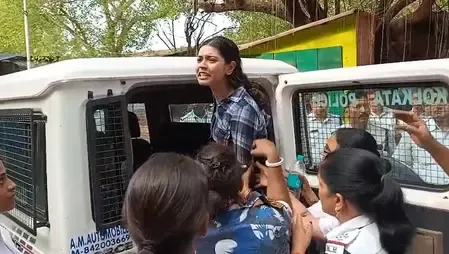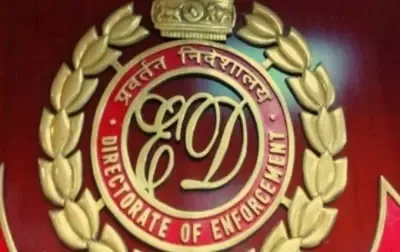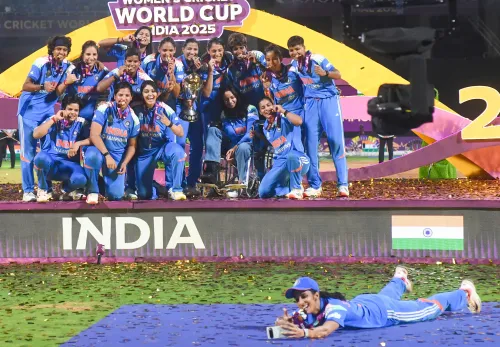Did the Calcutta HC Deny Ad-Interim Bail to Law Student for Hurting Religious Sentiments?

Synopsis
Key Takeaways
- Calcutta High Court denied bail to law student for social media post.
- Case highlights the tension between freedom of speech and respect for religious sentiments.
- Social media responsibility is crucial in a diverse society.
- Public apology issued after strong backlash.
- Next hearing scheduled for June 5.
Kolkata, June 3 (NationPress) The Calcutta High Court on Tuesday refused to grant ad-interim bail to Sharmistha Panoli, a 22-year-old law student who was recently detained by the Kolkata Police on allegations of hurting religious sentiments and inciting disharmony and hatred.
As her legal representative approached the High Court to contest the trial court’s ruling from the previous week, which placed her in judicial custody until June 13, the vacation bench led by Justice Partha Sarathi Chatterjee heard the case.
However, Justice Chatterjee did not provide any reprieve to Panoli, emphasizing that the right to freedom of speech does not permit individuals to wound others' religious sentiments.
An FIR was lodged against Panoli at Garden Reach Police Station on May 15, following her posting of an Instagram video in which she made remarks on 'Operation Sindoor,' allegedly offending the religious sentiments of a specific community.
In reaction to the backlash, she deleted the video and issued a public apology. Nevertheless, the police initially served her a notice, which became ineffective as she had already gone into hiding in Gurugram.
An arrest warrant was subsequently issued, leading to her capture by Kolkata Police on Saturday morning, after which she was transported back to Kolkata under transit remand on the same day.
While denying the ad-interim bail, Justice Chatterjee remarked that the video shared on social media reportedly offended the religious sentiments of a segment of the population. "We value freedom of speech, but it should not come at the cost of hurting others. Our nation is diverse, and we must tread carefully," he stated.
He instructed the police to present the case diary during the next hearing scheduled for June 5.
The vacation bench also mandated the state government to ensure that the police refrain from pursuing any other complaints against Panoli at different police stations and prohibited them from registering any new complaints related to the same incident.









